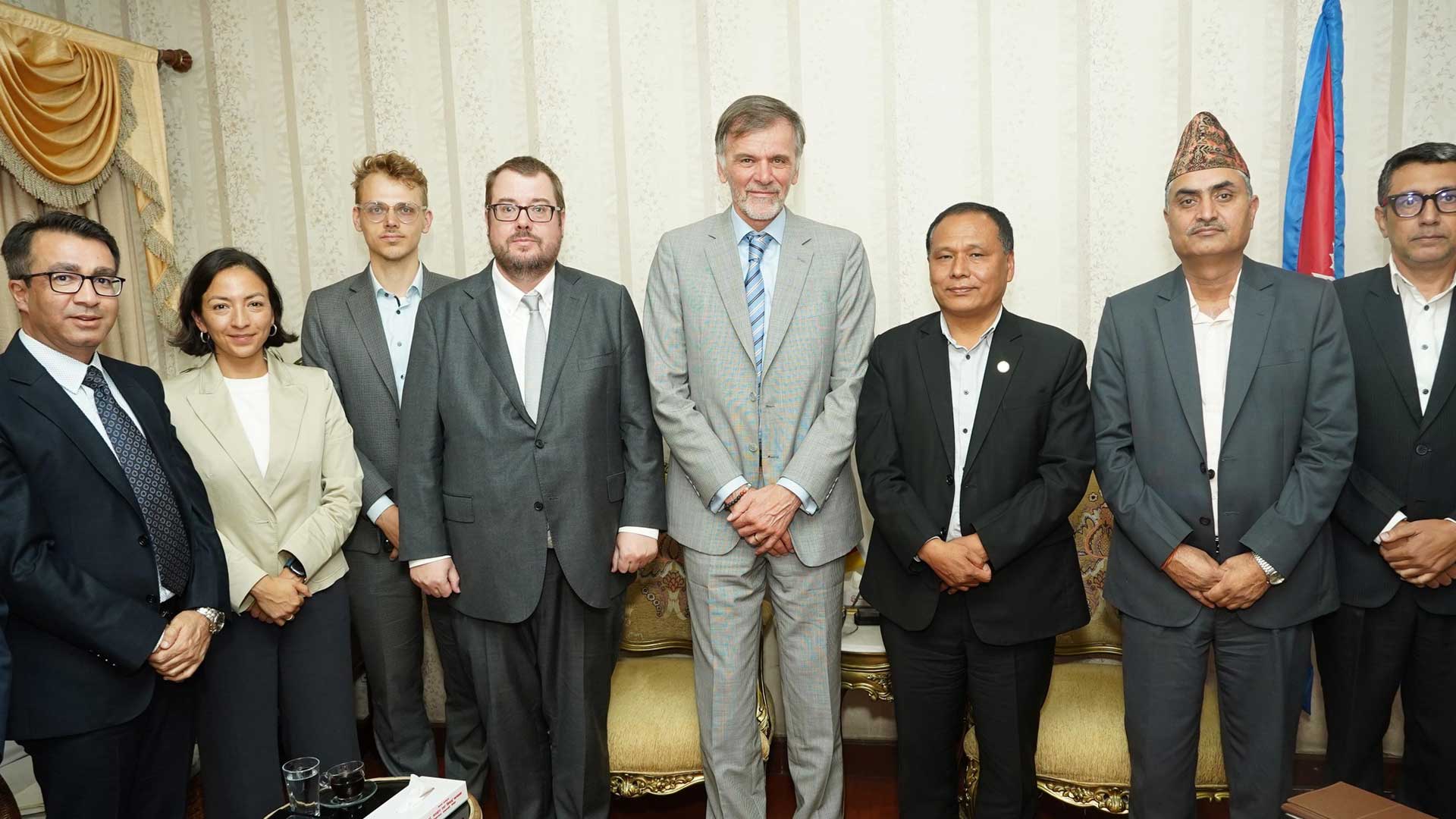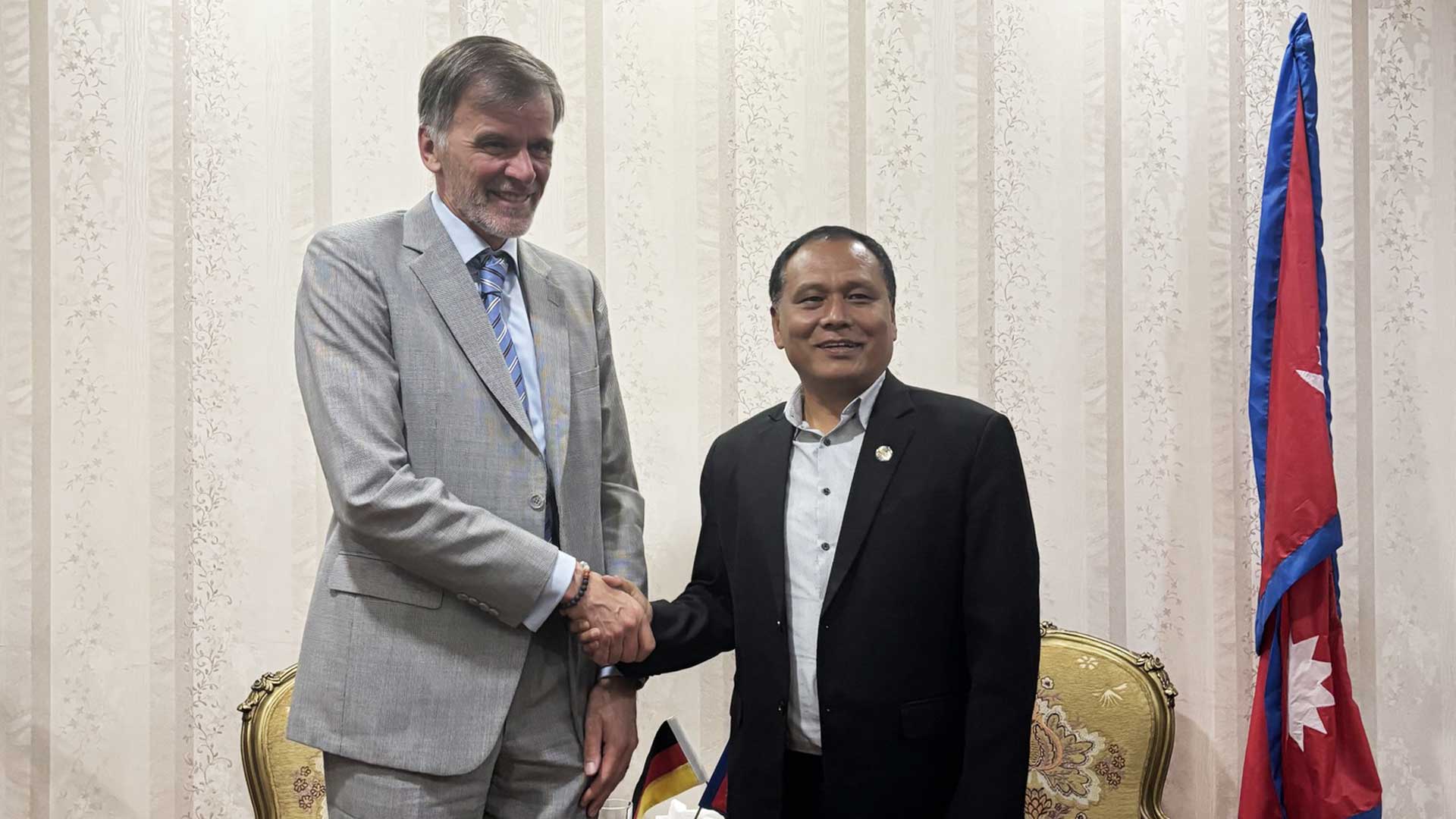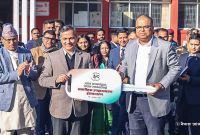German Envoy’s Meeting with Kul Man Ghising Signals New Turn in Nepal–Germany Energy Partnership

Kathmandu — A courtesy call between German Ambassador to Nepal Udo Volz and Minister for Energy, Water Resources and Irrigation Kul Man Ghising has signaled a potential strategic shift in Nepal–Germany energy cooperation. The discussions, held in Kathmandu, focused on climate-friendly energy promotion, strengthening power transmission and distribution networks, and advancing electric mobility — placing Nepal’s evolving energy diplomacy in a broader multipolar context.
According to an official statement from the German Embassy, Ambassador Volz praised Nepal’s recent achievements in the energy sector and expressed Germany’s commitment to expand cooperation in sustainable energy technologies. Representatives from the Ministry, the Embassy, GIZ, and KfW — Germany’s implementing agencies — attended the meeting.
Germany has maintained a long-standing partnership with Nepal in both on-grid and off-grid energy development. Early examples include the Lower and Middle Marsyangdi Hydropower Projects in the 1980s and early 2000s, financed through German grants and still operating today. Currently, Germany supports Nepal in energy transmission and distribution, energy efficiency, and electric mobility.

The renewed focus comes at a time when Nepal’s energy diplomacy is balancing multiple external partnerships. While Nepal is engaged with India and China on cross-border transmission and power trade, European partners such as Germany are increasingly positioning green energy as a tool of strategic diplomacy. With its vast hydropower potential, Nepal is seen as a viable partner in Europe’s efforts to diversify energy sources and meet climate targets under frameworks like the EU Green Deal.
Details of future collaborative projects discussed in the meeting have not been made public. As Nepal navigates its energy partnerships between China, India, and Europe, this high-level meeting underscores the growing importance of energy diplomacy in shaping the country’s strategic and developmental trajectory. The direction Nepal chooses in integrating advanced technologies, financing, and long-term cooperation will likely influence not only its domestic grid modernization but also its role in the regional and global energy landscape.
Germany in Nepal



![From Kathmandu to the World: How Excel Students Are Winning Big [Admission Open]](https://www.nepalaaja.com/img/70194/medium/excel-college-info-eng-nep-2342.jpg)
